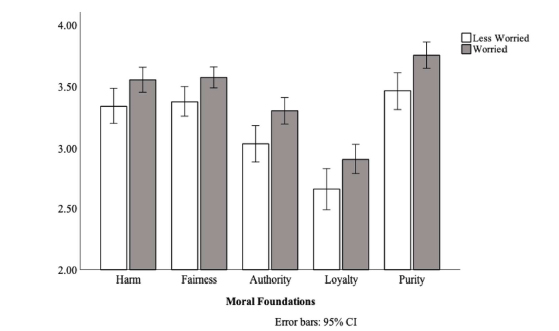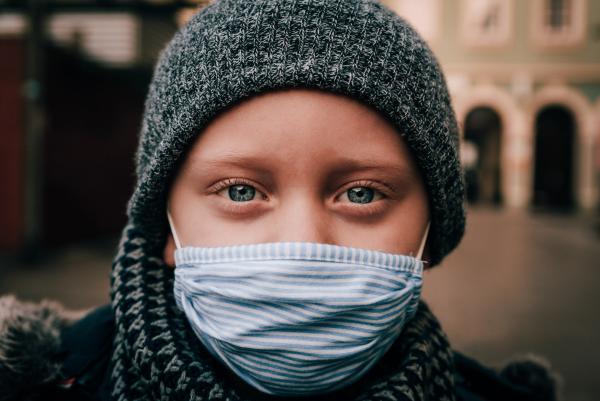Mid-pandemic, we were regularly treated to videos of nasty, verbal, and at times physical, confrontations about wearing a mask. I’ve written about my views; I think they are helpful. But that said, as a physician, I know that my patients, and people in general, choose their own paths. What I cannot understand is the passion that advocates on both sides of the issue brought to the figurative and literal fight. A study in the journal Evolutionary Psychology may offer some insights.
Can we begin by agreeing that what we consider right or wrong can be influenced by factors other than objectively agreed-upon facts, like our intuition or emotions or cultural values?
If so, then consider that infectious diseases are responsible for much of human deaths. Even when the setting is not a pandemic, infectious disease takes its toll during wars or famines. Deaths due to infection are greater today than death attributable to violence or injury. Evolution has provided us with a disease avoidance skill, but it is so ancient and subconscious that we rarely think of it as an evolutionary trait or talent – it is disgust. No one wants to eat anything that seems disgusting, although that will vary with both our hunger and worldview.
“Historically, individuals believed that violating moral proscriptions increased the likelihood of danger, and in particular the spread of infectious disease … Therefore, wrongdoers who violated such norms posed a threat to the survival of others.”
In other terms, how does our fear of contagion, contamination interact with our moral judgments? You can see why mask-wearing was so enticing for a group of researchers who felt those individuals more fearful of COVID-19 “would express more disapproval when evaluating wrongdoing than individuals with relatively lower worry.” They carried out three surveys to consider this hypothesis.
All three studies involved online participants. All participants were asked to rate on a scale of 1 – not wrong at all to 5 – extremely wrong, scenarios involving five components constituting a "moral framework" of judgment. These five pillars were
- Harm - “You see a girl laughing when she realizes her friend’s dad is the janitor.”
- Fairness – “You see a tenant bribing a landlord to be the first to get their apartment repainted”
- Loyalty - “You see a man leaving his family business to go work for their main competitor.”
- Authority - “You see a star player ignoring her coach's order to come to the bench during a game.”
- Purity -“You see two first cousins getting married to each other in an elaborate wedding.”
They were asked disgust, using a standardized questionnaire, and about COVID -19.
“Taking into consideration both your risk of contracting it and the seriousness of the illness, how worried are you personally about experiencing coronavirus?”
Additionally, the researchers collected the usual demographics. The studies were separated in time, from early to the middle of the pandemic, and looked initially at the responses of participants in the state of Washington, where COVID-19 first came to public attention, and Maine, where it had not. The third study looked across the US. Here is what they found.

- People’s concern about COVID-19 was not related to residing in an area of high or low prevalence.
- Participant worried about COVID-19 produced “harsher moral judgment.”
- No one moral pillar was the driving force
- Moral condemnation was not driven by political ideology
- “Contamination” disgust was “significantly correlated” to moral condemnation.
- “Contamination concerns” were primarily responsible for the subsequent moral condemnation.
Because the researchers looked at the same data over time, they were able to see that as worry over the virus increased, so did contamination disgust. Put another way, what subtle effects did all those news stories about the need to leave packages outside, disinfect them, and wear gloves, for example, have on our deep-seated beliefs?
The fear of COVID-19 at the personal level, the "what is my risk" level, appears to drive moral condemnation. That should come as no surprise. If you view a risk as existential – that you might well die if exposed to COVID-19 – or lose your “inalienable rights,” then framing your concern within that previously mentioned moral framework and the ensuing vehemence makes some form of sense.
“Our research raises the possibility that during a period of widespread concern about infectious disease, people may become more judgmental overall. In other words, people’s actions and intentions might be under more scrutiny, and when ambiguous, may be interpreted uncharitably, potentially resulting in misunderstandings, or interpersonal conflicts.”
Source: Disease and Disapproval: COVID-19 Concern is Related to Greater Moral Condemnation Evolution Psychology DOI: 10.31234/osf.io/7szaw




